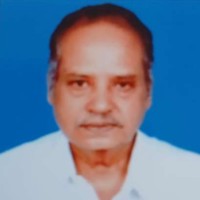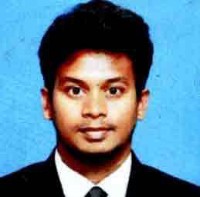
The Legal Aid Committee at Bharath Institute of Law is established with the vision of promoting social justice and legal empowerment by extending legal assistance to the underprivileged and marginalized sections of society. The committee actively works in alignment with the objectives of the National Legal Services Authority (NALSA) and the State Legal Services Authority (SLSA) to ensure access to justice for all.
The committee also seeks to inculcate a sense of social responsibility and legal awareness among students, equipping them with practical knowledge of the legal system through community engagement and legal outreach programs.
The Legal Aid Committee comprises dedicated faculty members committed to promoting justice and legal awareness. The current committee members are:



The Legal Aid Clinic had the honour of hosting Mr. V. Inbavijayan, an eminent international arbitrator, for a podcast on Alternative Dispute Resolution (ADR). An alumnus of Dr. Ambedkar Government Law College, University of Madras, he began his legal practice in 1997 at the High Court of Madras. Since 2001, he has dedicated his career to arbitration and has presided over more than 350 domestic cases and 15 international arbitrations.
Mr. Inbavijayan is accredited by global institutions such as HKIAC, CIETAC, and CRCICA. He also serves as an Approved Tutor for the Chartered Institute of Arbitrators (UK) and is a co-founder of CNICA. Recognised in the Who’s Who of Commercial Arbitrators and Indian Lawyer 45 under 45, he continues to promote ADR through training programmes, academic writings, and international lectures.
Podcast Overview
The session centred on the theme “Alternative Dispute Resolution (ADR)”, aiming to highlight its growing significance in both national and international contexts. Mr. Inbavijayan underscored that ADR serves as an efficient, cost-effective, and flexible mechanism that reduces the burden on courts while offering quicker justice to parties.
The guest elaborated on the different forms of ADR arbitration, mediation, and conciliation explaining their unique features and procedural distinctions. ADR was presented as a process that ensures confidentiality, reduced legal costs, speedy resolutions, and greater autonomy for disputing parties, making it a viable alternative to traditional court litigation.
Mr. Inbavijayan emphasised the importance of an arbitrator’s neutrality, effective case management, and award enforcement in ensuring fair and efficient dispute resolution. He provided insights into the working of ADR in global commerce, discussing jurisdictional challenges, recognition of awards, and enforcement issues in cross-border disputes.
While ADR is widely acknowledged for its benefits, Mr. Inbavijayan candidly addressed its challenges such as delays in certain cases, high costs in complex disputes, and enforcement difficulties. The podcast also touched upon the emerging trends in dispute resolution, including digital hearings, cross-border harmonisation of arbitration laws, and the growing use of ADR in trade and investment disputes.
The podcast was an enlightening experience, providing students and faculty with a comprehensive understanding of ADR’s potential and limitations. Mr. Inbavijayan’s expertise highlighted ADR’s role in shaping the future of dispute resolution in India and across the globe. By hosting such sessions, the Legal Aid Clinic, Bharath Institute of Law, reaffirms its commitment to promoting academic excellence and bridging the gap between legal theory and practice.
The Legal Aid Clinic had the privilege of hosting Dr. Saranya T. Jaikumar, one of the first doctorates in Educational Psychology in India and a renowned child rights activist. She is a distinguished member of the American Psychological Association, British Psychological Society, and the Rehabilitation Council of India.
Dr. Jaikumar is widely recognised as a flagbearer of POCSO awareness and digital safety for children, having collaborated with schools, police departments, NGOs, and government bodies. Over the years, she has conducted more than 750 awareness sessions across Tamil Nadu, impacting over one lakh parents, teachers, and students. As a former Member of the State Child Rights Commission, she has contributed significantly to child protection policy-making and has also represented these causes as a keynote speaker in various national and international forums.
Podcast Overview
The session with Dr. Jaikumar revolved around the theme of Child Rights, focusing on the legal framework, enforcement mechanisms, and the collective role of society in safeguarding children. Drawing from her rich experience, she offered practical insights into the pressing issues faced by children today and discussed the reforms necessary to strengthen child protection in India.
In her address, Dr. Jaikumar explained the constitutional provisions, statutory protections like the POCSO Act, and international conventions ratified by India that safeguard children’s rights. She highlighted critical issues such as child abuse, the right to education, digital safety concerns, and gender-specific vulnerabilities, all of which demand urgent attention in the present socio-legal landscape.
She further discussed the role of State and National Commissions for Child Rights, noting their importance in policymaking, enforcement, and ensuring institutional accountability. At the same time, she shed light on the practical challenges in enforcement, such as social stigma, systemic delays, lack of awareness, and institutional shortcomings that hinder effective protection.
Emphasising the significance of awareness, Dr. Jaikumar stressed the need for educating children, parents, and communities to build resilience and foster proactive engagement with child safety issues. Looking ahead, she recommended strengthening institutions, expanding awareness programmes, and encouraging community participation as essential measures to ensure that children grow up in a safe and supportive environment.
The podcast reaffirmed that protecting child rights is both a legal duty and a moral responsibility. Dr. Jaikumar’s practical insights and wide-ranging field experience highlighted how law, policy, awareness, and collective societal effort must converge to secure a dignified and safe childhood for every child.
Through this enriching session, the Legal Aid Clinic, Bharath Institute of Law, continues its mission of combining legal education with social responsibility, inspiring students and faculty to play an active role in safeguarding the rights of children.
For legal assistance, event participation, or volunteering opportunities, please contact the Legal Aid Committee through the Dean’s Office or email at.